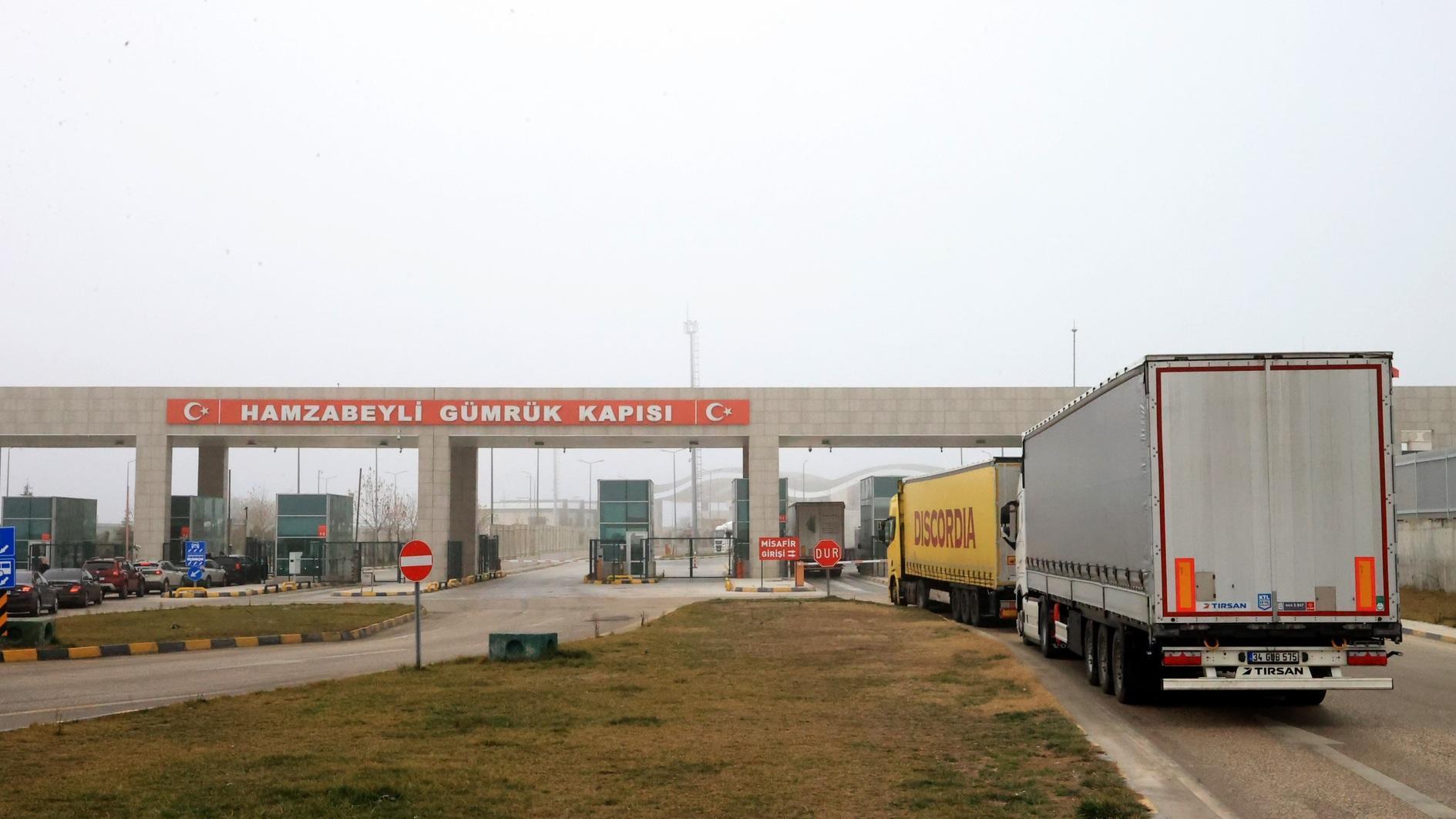Turkish exporters mull new sea route to alleviate Bulgaria border gridlock
ISTANBUL

Turkish export representatives are contemplating a plan to alleviate truck congestion at the Türkiye-Bulgaria border by transporting vehicles to Romania via sea routes, aiming to resolve the bottleneck through maritime logistics, local media has reported.
Kapıkule and Hamzabeyli, the principal gateway for Turkish exports to Europe, frequently witnesses extended queues during peak shipment seasons, driven by high export volumes.
The issue is further compounded by Bulgaria's full integration into the Schengen Zone and prolonged pesticide residue inspections for agricultural products.
In response, Turkish exporters, with institutional backing, have initiated a “maritime route” operation.
Having previously explored potential routes to Greece and Italy without tangible outcomes, exporters are now focusing on Romania’s Constanta Port, according to Ümit Mirza Çavuşoğlu, the head of the Western Mediterranean Exporters’ Association (BAİB), in a statement to daily Hürriyet.
Under the proposed plan, a portion of the trucks will be loaded onto ships at Türkiye’s Sakarya Port and transported to Constanta via the Black Sea route, from where they will continue to their final destinations across European markets.
"Nearly half of our loaded trucks face arbitrary delays or outright rejections. This isn’t solely Bulgaria's doing — it’s part of Europe’s covert blockade," Çavuşoğlu remarked, emphasizing that this persistent issue has escalated into a chronic problem over the past three years during high-export periods.
A delegation of Turkish exporters recently visited Romania to engage with port authorities at Constanta, achieving promising progress.
Notably, the Romanian authorities have begun establishing a laboratory to conduct residue testing on fruits and vegetables, facilitating compliance with European standards.
Across Europe, agricultural goods are subject to rigorous border inspections for pesticide residues, with non-compliant shipments being denied entry. While a laboratory was recently set up at the Kapıkule Border Gate to expedite this process, it has failed to provide a definitive solution to the mounting congestion.
Should the maritime solution materialize, Turkish exporters aim to initially dispatch 300 trucks per day via ships to Romania, with plans to scale this number up to 600 in subsequent phases.
"Although the process is currently spearheaded by the private sector, government intervention is anticipated by May or June," Çavuşoğlu disclosed.
He also mentioned the possibility of utilizing the Turkish northern province of Zonguldak as an alternative embarkation point.
However, Çavuşoğlu expressed concerns about potential objections from Bulgaria, which might escalate the matter to the European Union.
"Our only apprehension is that Bulgaria might lodge a complaint with the EU, accusing us of bypassing them. What happens next is uncertain, but we remain steadfast in pursuing this alternative route," he asserted.
Şerafettin Aras, the head of the International Transporters’ Association, voiced support for the plan, noting that approximately 1,350 export and 1,600 import trucks currently pass through Kapıkule daily.
However, he underscored the insufficiency of the border infrastructure to accommodate this volume.
















